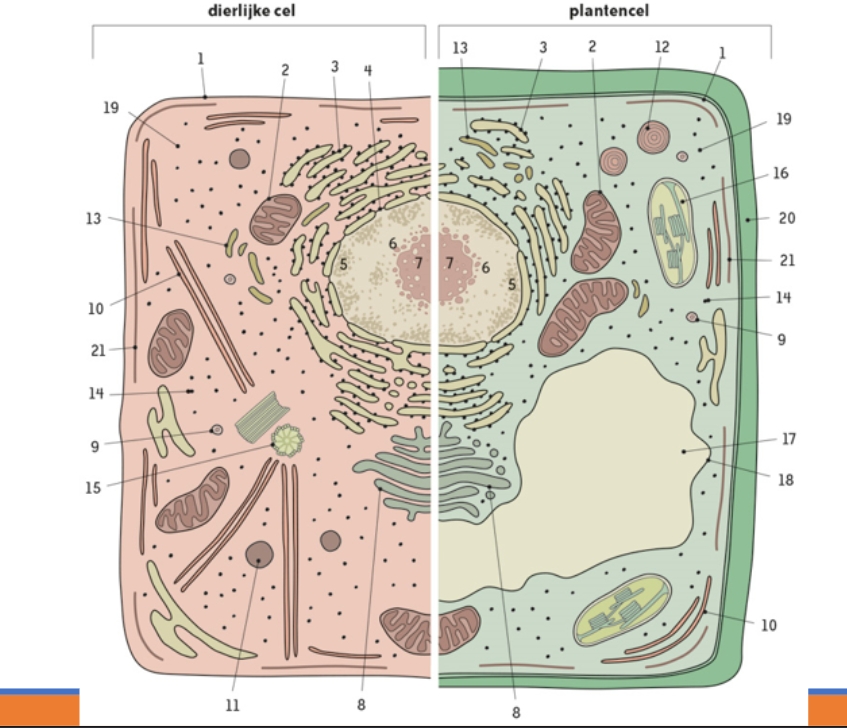What are the differences between animal cells and plant cells based on the diagram?

Understand the Problem
The question likely relates to identifying and comparing the structures of animal and plant cells as depicted in the image, possibly focusing on specific organelles or functions.
Answer
Plant cells have a cell wall, chloroplasts, and a large vacuole; animal cells have lysosomes and centrosomes.
The main differences are: plant cells have a cell wall, chloroplasts, and a large central vacuole, while animal cells have lysosomes and centrosomes.
Answer for screen readers
The main differences are: plant cells have a cell wall, chloroplasts, and a large central vacuole, while animal cells have lysosomes and centrosomes.
More Information
In addition to the structural variations, plant and animal cells perform different functions in their respective organisms. Plant cells have chloroplasts to carry out photosynthesis.
Tips
A common mistake is assuming both cell types contain the same organelles without accounting for structural differences.
Sources
- Comparing Plant and Animal Cells - Biology LibreTexts - bio.libretexts.org
- Difference Between Plant cell and Animal cell - BYJU'S - byjus.com
- Plant Cell vs Animal Cell - Difference and Comparison - Diffen - diffen.com
AI-generated content may contain errors. Please verify critical information